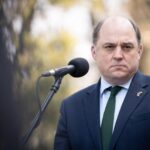
* Agreement aims to boost mandatory fees
* Donors need to approve deal in May meeting
* U.S. support was a ‘turning point’ in talks (Adds context, quotes, bullets)
By Emma Farge
GENEVA, April 28 (Reuters) – World Health Organization members agreed this week to gradually raise their mandatory fees starting from 2024, sources following the talks and a WHO advisor said on Thursday, as part of a funding review seen as vital to the U.N. health agency’s future.
Reforming the 74-year old agency’s funding model is a priority for Director-General Tedros Adhanom Ghebreyesus as he aims to remodel it to respond to the risk of more pandemics. Currently, the body relies heavily on voluntary contributions from governments and private donors which are often earmarked for specific programmes, leaving it with insufficient flexibility.
“There’s a basic agreement and there is a timeline and conditions,” one of three sources following the closed-door talks told Reuters.
WHO did not immediately respond to an emailed request for comment although a special advisor to Tedros, Peter Singer, said on Twitter the agreement was “fantastic news that will save lives.” Germany, whose national Bjorn Kummel chairs the talks, also confirmed the outcome on Twitter.
The agreement is in the form of a recommendation and still needs to be formally approved by governments at the World Health Assembly next month.
REFORM HEADWINDS
The compromise reached late on Wednesday envisages mandatory fees reaching 50% of the budget by 2028-2029, or possibly 2030-31, the sources said. The funding reforms have been discussed over the past year and a half and the compromise deal, which is contingent on certain conditions such as transparency measures, was watered down due to opposition from some member states.
“The WHO was facing headwinds on funding – not just from the US, but from Russia, Brazil, and a range of others on the assessed contributions,” said Lawrence Gostin, a professor at Georgetown Law in Washington, D.C.
One of the sources following the talks said that U.S. support had been a “turning point” in the negotiations.
Washington, historically the main donor to the agency and now its number 2 contributor, this year reversed plans under former President Donald Trump to withdraw from the body and has vowed more funding. (Additional reporting by Jennifer Rigbyin London; Editing by Catherine Evans and Raissa Kasolowsky)




